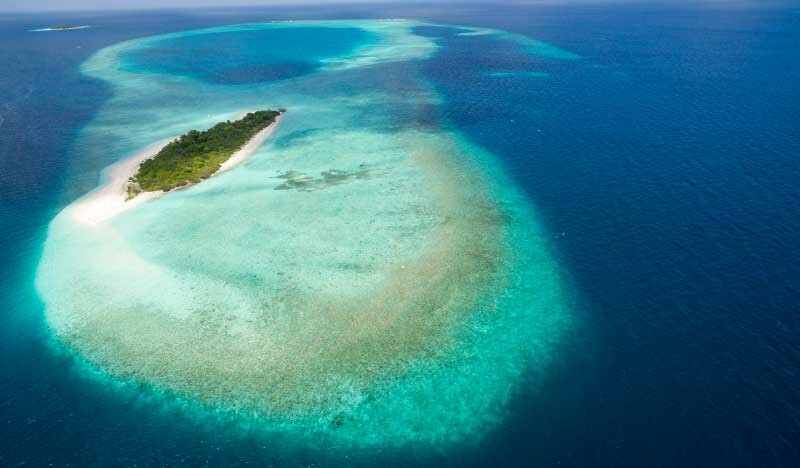World Bank Warns of Severe Climate Threats to Maldives’ Economy

Aerial of Hanifaru Bay area. Photo: Dynamyst
The Maldives’ economy is under significant threat due to the impacts of climate change, with urgent adaptation measures needed to safeguard the nation’s environment and economy, according to a new report released today by the World Bank Group.
The Maldives Country Climate and Development Report (CCDR) emphasises the alarming projections that could have far-reaching consequences for the nation’s key economic sectors, particularly tourism and fisheries, which comprise nearly half of the country’s GDP and employment.
The report warns that the degradation of marine ecosystems, especially coral reefs, will worsen substantially by mid-century, posing unprecedented challenges to the tourism and fisheries industries. Coral reefs, vital for coastal protection and tourism, are expected to disappear almost entirely if global temperatures rise above 2°C.
In addition to the threats to marine ecosystems, the report highlights the impacts of sea-level rise, projecting an increase of up to 0.9 meters by the end of the century. Coastal flooding, a major concern for the low-lying islands, could result in substantial economic damages, with projections ranging between US$0.7–1.1 billion by 2050.
David Sislen, World Bank Country Director for the Maldives, Nepal, and Sri Lanka emphasised the urgency of addressing these risks, stating, “The Maldives is at a critical juncture where the impacts of climate change and ongoing economic challenges converge. The CCDR outlines a pathway for safeguarding natural assets while building a more resilient and sustainable economy.”
The report proposes key strategies for addressing climate challenges, including fiscal reforms, mobilising climate finance, and improving the resilience of vital sectors like fisheries and tourism. It also underscores the need to reduce blanket subsidies to create fiscal space for climate-related investments and to develop a national carbon market strategy to attract sustainable private financing.
The Maldives’ resorts are already experiencing the effects of climate change, with over 90% reporting beach erosion and 60% facing infrastructure damage. Changes in fish migration patterns also threaten the fisheries sector, with potential reductions in fish catch by up to 100% by the end of the century under extreme scenarios.
Adapting to sea-level rise, flooding, and other climate risks will require significant investments, estimated between $2 billion and $4 billion. Access to concessional financing and public-private partnerships is vital for funding the necessary projects.
The Maldives Country Climate and Development Report outlines a comprehensive roadmap for balancing climate action with development goals. With key sectors like tourism and fisheries under threat, timely adaptation measures and innovative financing solutions are critical to ensuring the country’s long-term sustainability.







